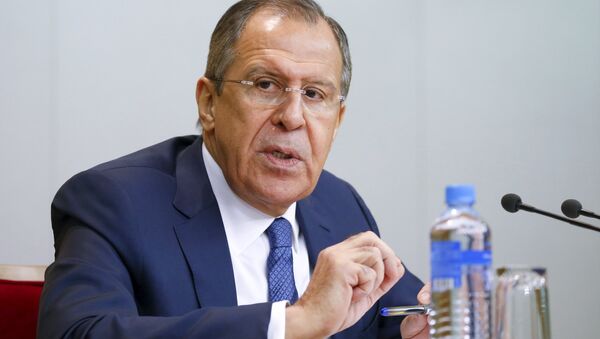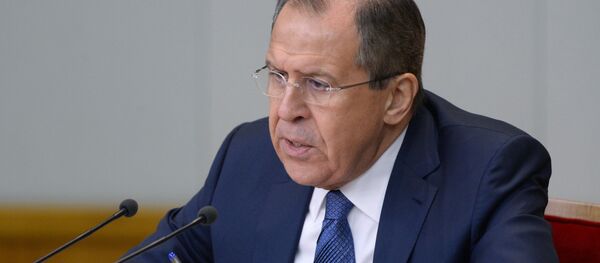"We have a common stance regarding the need for an uncompromising fight against this absolute evil, both through military means and by cutting terrorist supply channels, in particular the Islamic State's [ISIL or Daesh, banned in Russia] and, of course, by combating the spread of extremist ideologies," Lavrov told reporters following Russia-Arab League meeting.
In an official joint statement agreed during the talks, the sides welcome the idea of creating a broad anti-terrorism coalition, according to the minister.
"The statement supports Russian President Vladimir Putin's initiative to create a broad anti-terrorism front based on international law, under UN auspices," he said.
"Today, we also confirmed our readiness to continue our policy of assisting our Arab friends in normalizing relations with the Islamic Republic of Iran," Lavrov said.
"We consider this to be a very important matter, which is significant by itself, but a solution to which would also largely contribute to the settlement of various crises in the region, including in Syria, Yemen," he added.
Instability in the Middle East, particularly in Syria, which has been engulfed in a civil war since 2011, has resulted in the emergence of various extremist groups, particularly the notorious Islamic State (ISIL or Daesh), which is outlawed in Russia and many other countries.
The Russian-Arab forum is currently under way in Moscow. The agenda of the forum includes issues of the Middle East and Africa, including the fight against terrorism, crisis-solving strategies and responses to common threats, among other points.
The Russian-Arab forum is held every two years. The first meeting took place on February 20, 2013, in Moscow, while the second was held in Sudan's Khartoum on December 3, 2014.



